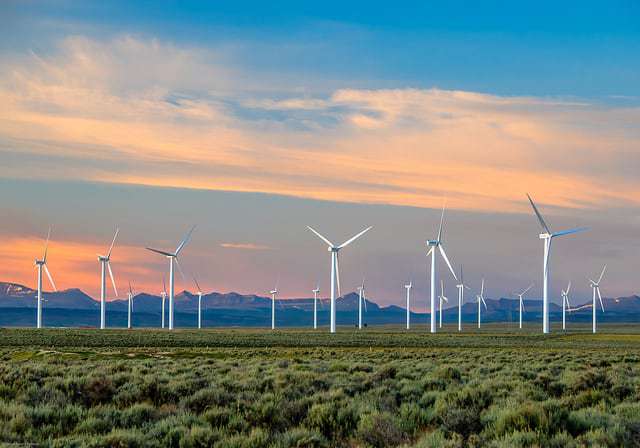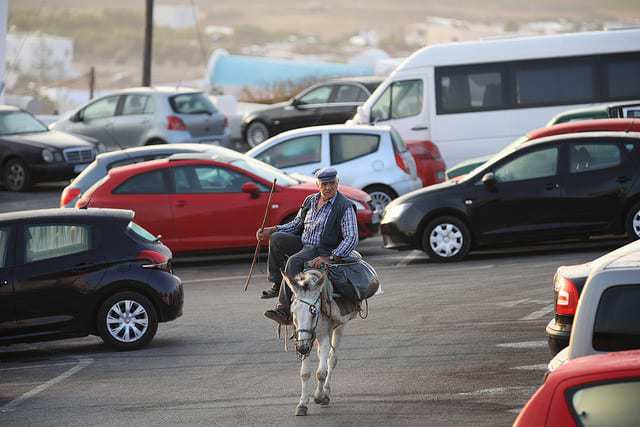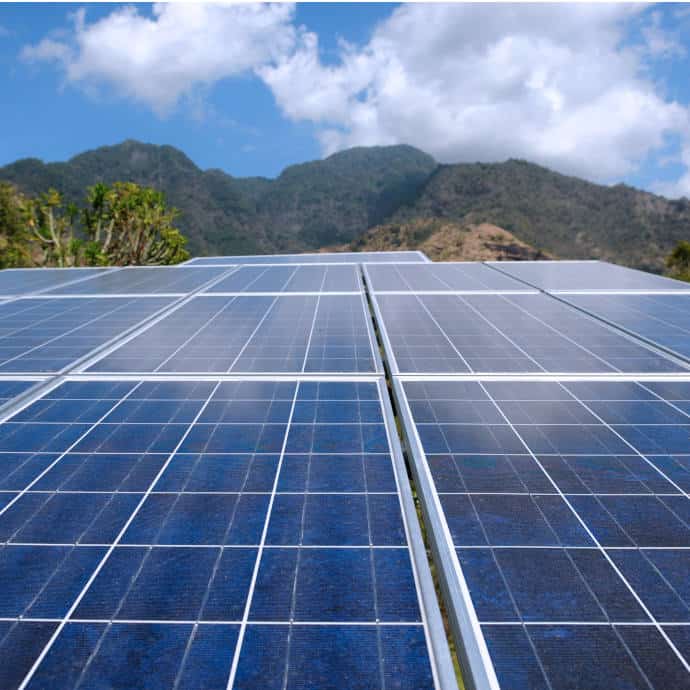The green economy is supposed to reduce environmental degradation while supporting sustainable development within the framework of neoliberal markets by incorporating accountability into the appropriation of nature (Fairhead et. al. 2012:254). As defined by the United Nations Environment Programme (UNEP) “to be green, an economy must not only be efficient, but also fair. Fairness implies recognizing global and country level equity dimensions, particularly in assuring a just transition to an economy that is low-carbon, resource efficient, and socially inclusive”. The green economy realigns the relationship between humans and nature within the existing neoliberal system by reimagining corporate responsibility – the market remains at the heart of economic activity yet maintains an ethical edge. The call is for “ecological modernization where economic growth and environmental conservation work in tandem” within a just social and ethical calculus (Fairhead et al. 2012:240, Knight 2017a).
The green economy is widely viewed by both political and environmental commentators as a sustainable way out of financial turmoil in countries suffering from long-term austerity. Promising a future based on alternative markets, community-ownership, and corporate responsibility, the green economy should fill people with feelings of hope and anticipation at a Time of Crisis when livelihoods are being transformed beyond recognition.
However, often these green programmes are hijacked by multinationals who exploit the Time of Crisis for financial gain, overlooking local communities and engendering similar relations as found in extractive resource economies.
A whole multitude of sins can be kept from the public imagination when strategically packaged as ‘green’, leaving people feeling disillusioned, dispossessed and exhausted as promised futures are never realised.
In Greece, over the past decade wind, solar and natural gas exploration programmes have been supported by the European Union and have attracted substantial private investment. However, these green initiatives often exhibit an undesirable underbelly, either as extractive economies, veils for so-called ‘green grabbing’, or vessels to deliver a plethora of broken promises. In short, the movement towards the green economy in a Time of Crisis has encouraged a repetition of the neoliberal model of privatization, short‐term accumulation, rentier agreements and resource extraction. This is contrary to views that cast ‘crisis’ as an incubator of economic strategies that may feed green ecological transformations of the economy leading, ultimately, to sustainable growth (Argenti and Knight 2015, Knight 2017a).

In all instances, local people are asked to speculate about their (seemingly bright) energy futures – harnessing the potentiality of natural resources, raising expectations that employment and prosperity will be just over the futural horizon, hope that the economic momentum provided by renewable energy generation will deliver individuals, families, nations from a Time of Crisis. Unavoidably, green economy initiatives fuel the imagination since the activities seem overtly futural, promising ultra-modern, technological, internationally-endorsed solutions to what now seem like archaic problems of economic stagnation, self-sustainability and ultimately climate change. There is the overpowering idea in the public mind that everyday people will have ownership of their future (both environmental and economic). But while orientations entail planning for the future, they also often involve the collapse of those efforts, resulting in feelings of exhaustion, resignation, apathy as the future does not turn out as expected (Bryant and Knight 2019).
In this short piece I focus on how developments in Greece’s green economy have inspired and disappointed futural-thought, specifically speculation, in a Time of Crisis. The green economy provides a lens through which people orient themselves toward the future, often trapping people between speculation and disillusion on what the future holds.
Speculative Futures at a Time of Crisis
Between 2009 and 2011 three natural gas fields were discovered in the Eastern Mediterranean. Named Tamar, Leviathan and Aphrodite, the revelation that 122 trillion cubic feet (tcf) of untouched reserves were just waiting to be tapped sparked intense political debate between Cyprus, Greece and Israel, and later Egypt and Lebanon, over ownership and extraction rights. Cyprus and Israel were quick to commence negotiations, establishing an Exclusive Economic Zone (EEZ) in 2010 that, in a bid to reduce costs, included a joint agreement on the extraction of natural gas by the American company Noble Energy. Europe requires 19 tcf of fuel per annum; Cyprus believes that its EEZ holds 60 tcf. Licensing for the exploration blocks is expected to start at around 80 million euros per drillship. Suffice to say, Greece felt left out of the fun and games.
Amidst the political bickering and points-scoring that has marked the so-called Greek economic crisis that has raged since 2010, the Greek government lost sight of the potential of a major gas field on its doorstep.
Only in 2013 did Greece sign a memorandum of understanding and in 2015 broker a deal to export gas to Europe. This was despite much public speculation about the potential benefit of natural resource extraction for the Greek public in the grips of chronic austerity. A news broadcast in late 2012 bemoaned the lethargic reaction of the Greek government in allowing Cyprus and Israel to get a head-start on a matter that “might be the answer” to the financial problems of the Greek state. Their government, argued the presenter, was too interested in fighting among itself and its politicians focused on holding onto their seats in parliament. Rather, a longer-term view should be adopted to serve the future of the country. Cyprus, the audience was told, had the luxury of a consistent energy policy that was passed from one administration to the next. In Greece, with the (regular) change of government came a change in energy policy.
Among the general public there was an air of excitement, tinged with frustration and myriad conspiracy theories. Rumours, myths and hyperbole concerning the extent of the discovery and the potential financial benefits of exporting energy reigned supreme in cafeterias across the country. People were living the future before a drill had even been sunk (cf. Weszkalnys 2015, on gossip and rumour see Pipyrou 2018, Rapport 1998). Since 2011, the Eastern Mediterranean energy field has been one of the main topics of conversation/gossip between me and Vasilis, a 65-year-old retired salesman from Central Greece.
Vasilis’s imagination runs wild when he discusses the natural gas field, he races into the future in leaps and bounds, imagining a world in which Greece is energy self-sufficient and the Time of Crisis has transitioned into a Time of Prosperity for the everyday citizen.
When he first learned of the potential gas field, Vasilis felt that this was a great opportunity for Greece to become a major player in the European energy industry. He thought that the discovery might signal a way out of the financial quagmire, certainly on a national level, and that perhaps some benefits might even filter down to the everyday person, at least in the form of employment and cheaper energy bills. His son had just qualified as an engineer and Vasilis had dreams of him working the rigs and providing for his cash-strapped family.
In the apparent emptiness of the present (see Dzenovska 2018), with not much left to hope for—Vasilis had recently had his pension cut by 33 percent and both his children were unemployed—the mind was racing. Over the years, Vasilis’s optimism for the future has turned from disbelief, to disillusion, to apathy. He has since started speculating as to why political consensus has not been reached and drilling has not started. In what could be classed as conspiracy theories, Vasilis speculates that the United States and Israel will corner the market for energy extraction in the Mediterranean in an attempt to keep the Greek people in poverty, “in the same way that the United States broke up the Balkans into small countries – to have more markets to sell their McDonald’s and Budweiser and keep the local people poor.” He states that “our politicians could make this country rich by agreeing a contract to drill for gas and oil, but they are in this together with the Americans and the Jews. They (the Greek government) are as corrupt as the foreigners” (on blame see Knight 2013, Brown and Theodossopoulos 2003, Rakopoulos 2018).

His initial excitement which provoked him to dream of a better life for his family, projecting a bountiful time of inclusion, prosperity, a return to Greece’s futures past, has now firmly turned to resignation that international power-games are set to conspire against the Greek people. His speculative future has collapsed, and he has shifted from the optimism of dreaming for a better future for family and nation, to cynicism and conspiracy about the colonization of the future by corporations and subversive political forces. Vasilis believes that this is a deliberate attempt by his own government and external forces to promote cynicism about the future and keep the population under control by making resignation “a dominant mode of political action” (Benson and Kirsch 2010:474). His visions of a prosperous future based on the fruits of the energy industry may never come to fruition as he had once projected, but it still holds potential – evidenced by the physical existence of natural gas under the Mediterranean Sea (cf. Weszkalnys 2015). Yet, for Vasilis, this potential was no longer a topic on which to speculate.
I have written at length elsewhere on how the energy industry, particularly wind and solar, has been hailed as the saviour of the Greek economy (Argenti and Knight 2015, Knight 2017b). The solar (photovoltaic) industry has been heralded as a lifeline for poor Greek farmers and national economy alike, a way to pay back debts and decrease the country’s fiscal deficit. Yet, the solar initiative has rarely benefitted local communities, instead being targeted toward international export. Public speculation on the benefits of new energy initiatives has been quick to turn to narratives of economic extraction, neo-colonialism and the punitive impact of excessive private investment on local communities.
Futures based on new models of ecological and economic sustainability have failed to materialise and hope-filled speculation for a different future and a way out of a Time of Crisis has descended into disillusion and resignation.
From gas fields to solar and wind, the current energy landscape is full of paradoxical images. Saviour packages turn public opinion from excitement to apathy. This is primarily because, Sam Collins (2008) suggests, new programmes tend to recapture their own potential, harnessing little surprise, being neoliberal schemes reborn in their own image. As Gisa Weszkalnys (2015:630) has argued in the context of Saõ Tomé and Príncipe off the coast of West Africa, the social and economic consequences of investing in speculative futures drains local people not only financially but also emotionally as stories of prosperity, spread through rumour and gossip, insist that people invest themselves wholeheartedly in a future that is always just over the horizon, yet never quite materialised.
Conclusion: “I want to believe”
The green economy is packaged as offering futures based on inclusion, prosperity for all, corporate responsibly toward the social, and ethical clean-green ecological arrangements. As such, green economy initiatives persuade people to positively orient toward the future. Energy futures encourage hope, speculation and anticipation of dramatic change. Green energy is packaged as ‘futuristic’, ‘modern’, ‘high-tech’, ‘cutting-edge’ and belonging ‘to the people, for the people’. However, the reality of futural promises in the green economy tends to be ‘more of the same’ – multinational opportunism and extractive economies that leave local people feeling disenfranchised. Futural orientations shift to exhaustion at being exploited yet again, and feelings that the Time of Crisis is here to stay.
For Weszkalnys (2015:621), “speculation about resource potential thrives at historical junctures characterized by the foreclosing of previous material possibilities while it opens others alongside new markets.” The natural gas fields under the Eastern Mediterranean fuelled speculation and expectation about a prosperous future as people expressed excitement at owning their own destiny after a period of disenfranchisement. Spread through rumour and gossip, green energy still remains a basis for hope that Greece can one day be delivered from a chronic Time of Crisis.
Speculation suspends the need for certitude in the desire for change, meaning that the energy sector continues to be immersed in future-orientated speculative investment, with one prophesised life-saving programme following another.
Often fuelled by rumour and gossip, local people and corporations buy into indeterminate futures. The all-encompassing desperation of a Time of Crisis is fertile ground in which to plant the seeds of hope. Locals feel that they have very little to lose in pinning their futures to shaky scientific evidence and hollow promises. Multinationals, private investors, and foreign governments are well aware of this and the green economy is the perfect ‘wolf in sheep’s clothing’ to prey on people who simply ‘want to believe’. Through the green economy, sustainability (particularly green energy) has been framed as a saviour pathway out of a prolonged era of political and economic turmoil. Yet, all too often the promised futures do not materialise and, rather than assisting everyday livelihoods, green futures replicate and reinforce the status quo.
References
Argenti, N. and D. M. Knight. 2015. Sun, wind, and the rebirth of extractive economies: renewable energy investment and metanarratives of crisis in Greece. Journal of the Royal Anthropological Institute 21(4): 781-802.
Benson, P, and S. Kirsch. 2010. Corporate Oxymorons. Dialectical Anthropology 34:35–48.
Brown, K. and D. Theodossopoulos. 2003. Rearranging Solidarity: Conspiracy and the World Order in Greek and Macedonian Commentaries of Kosovo. Journal of Southern Europe and the Balkans 5(3):315–335.
Bryant, R. and D. Knight. 2019. The Anthropology of the Future. Cambridge: University of Cambridge Press.
Collins, S.G. 2008. All Tomorrow’s Cultures: Anthropological Engagements with the Future. Oxford: Berghahn.
Dzenovska, D. 2018. Emptiness and its futures: Staying and leaving as tactics of life in Latvia. Focaal: Journal of Global and Historical Anthropology 80: 16-29.
Fairhead, J. et al. 2012. Green grabbing: A new appropriation of nature? The Journal of Peasant Studies 39(2): 237-261.
Howe, C. 2014. Anthropocenic ecoauthority: The winds of Oaxaca. Anthropological Quarterly 87(2): 381-404.
Knight, D. M. 2013. The Greek Economic Crisis as Trope. Focaal: Journal of Global and Historical Anthropology 65: 147-159.
Knight, D. M. 2017a. The Green Economy as Sustainable Alternative? Anthropology Today 33(5): 28-31.
Knight, D. M. 2017b. Energy Talk, Temporality, and Belonging in Austerity Greece. Anthropological Quarterly 90(1): 167-192.
Pipyrou, S. 2018. Rumor Has It: Leisure, Gossip and Distortion at Funerals in Central Greece. In Leisure and Death. Kaul, A. and J. Skinner. eds. Pp. 244-258. Boulder, CO: University of Colorado Press.
Rakopoulos, T. 2018. Show me the money: Conspiracy theories and distant wealth. History and Anthropology 29(3): 376-391.
Rapport, N. 1998. Gossip. In Encyclopaedia of Social and Cultural Anthropology, A. Barnard and J. Spencer, eds. London: Routledge, pp. 266–67.
Weszkalnys, G. 2015. Geology, Potentiality, Speculation: On the Indeterminacy of ‘First Oil’. Cultural Anthropology 30(4): 611–39.
Featured image by Selamat Made (flickr, CC BY 2.0)





